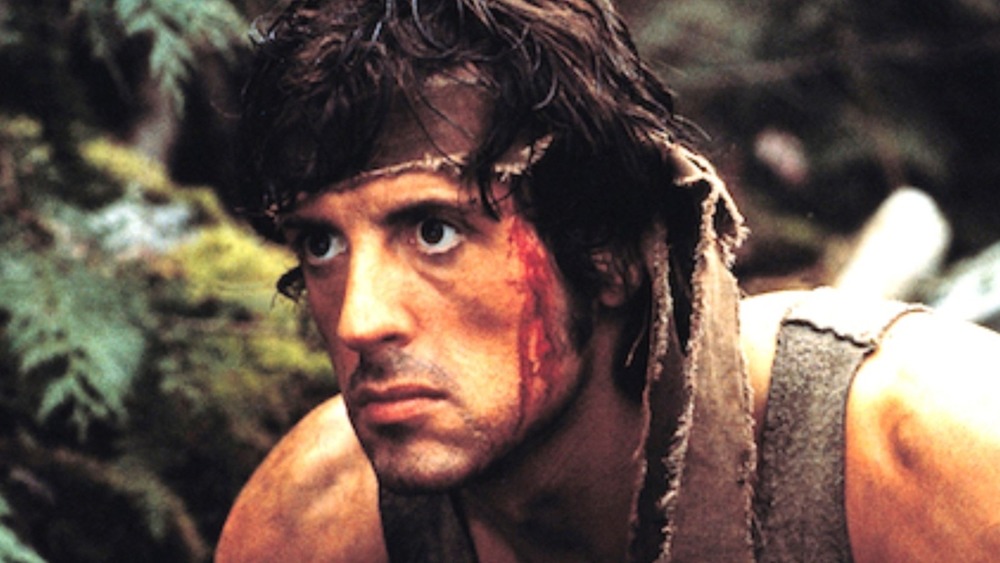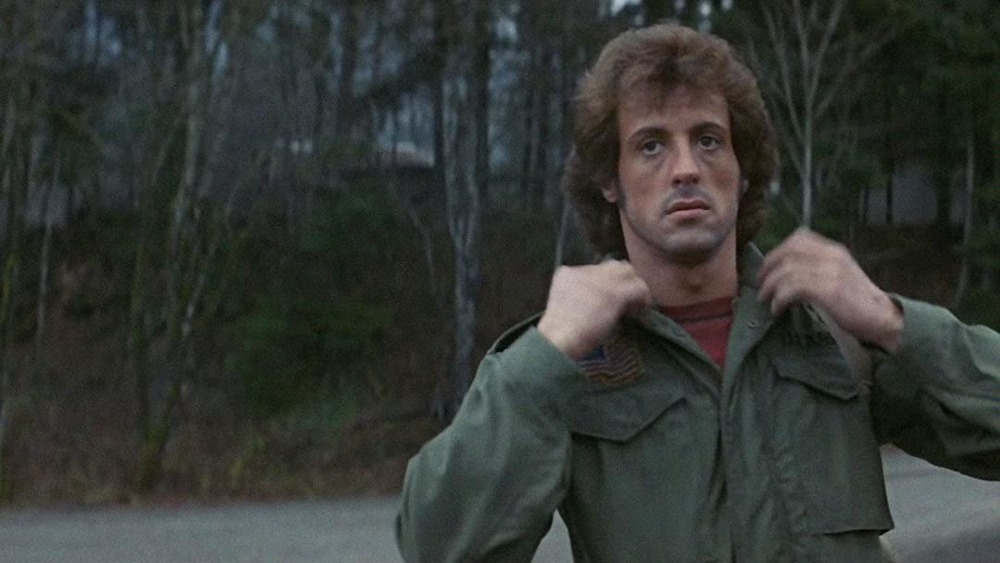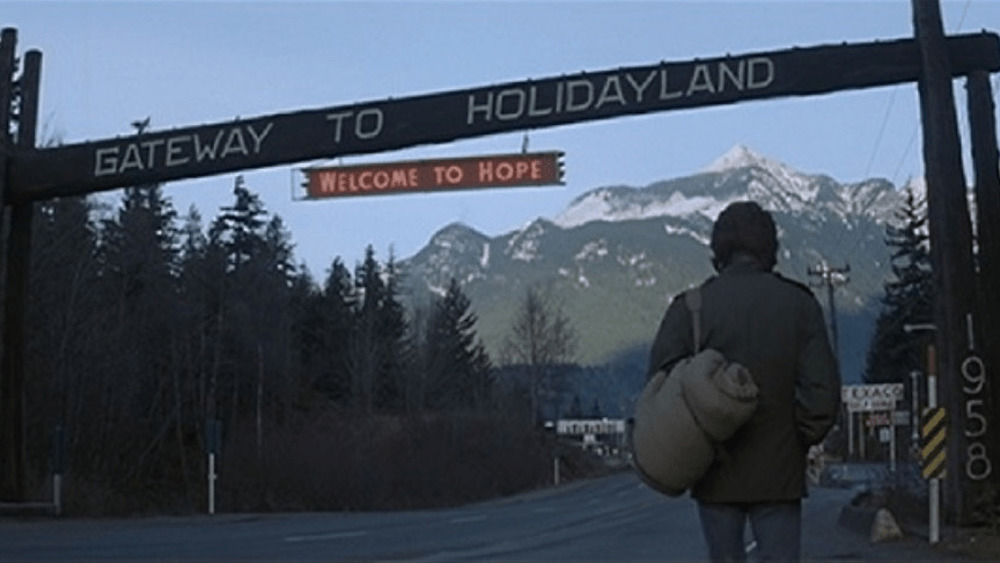The Ending Of Rambo Explained
The Rambo movies are known for their explosive action and bloody violence, but the popular series' first installment, aptly titled Rambo: First Blood, is quite tame compared to its sequels. Based on David Morrell's 1972 book of the same name, the film follows the eponymous Vietnam veteran John Rambo (Sylvester Stallone) as he gets on the wrong side of a small-town sheriff (Brian Dennehy) who doesn't want him hanging around and upsetting the locals. Unfortunately, this triggers Rambo's memories of his horrific combat experience and all hell breaks loose. While there is plenty of carnage to enjoy, Rambo is primarily a character study about a soldier with PTSD who can't reintegrate into the society he fought to protect.
While Rambo's sequels have been interpreted as jingoistic action movies that care more about kill counts than character development, the franchise is arguably more nuanced than it's given credit for sometimes. However, one need look no further than the first film and its ending to understand the franchise's moral gray areas.
Rambo's ending is a commentary on the treatment of war veterans
Rambo's closing moments see the soldier engaged in a gunfight with the sheriff, which leads to the latter falling through a skylight. As Rambo prepares to finish off the fallen lawman, his former military colonel appears and orders him to surrender. Rambo then bursts into tears and recalls his painful memories of war, while also explaining how terribly he's been treated since returning to the United States. The one-man army is subsequently arrested, though the calm demeanor of the police officers suggests that they are now more sympathetic to his plight. Rambo's breakdown is a cry for help, but he also addresses some issues that resonated with many real-world veterans of the Vietnam war. As History pointed out, some corners of American society shunned soldiers upon their return from the war due to the divisive nature of the conflict itself. The country was embittered, and many of the soldiers who came back traumatized weren't given the help they needed.
The central character's breakdown at the end of Rambo is a powerful moment that aims to address veterans' mental health issues. The scene shows that not all soldiers are remorseless killing machines, as many felt a sense of guilt over their war actions, too. Rambo's ending doesn't shy away from addressing the murkier side of America's actions in Vietnam. However, war is complicated and everyone suffers.
Rambo's original ending was much darker
Rambo and the sheriff both die in the original novel, and the film was originally set to have its own tragic conclusion. As Entertainment Weekly noted, when Ted Kotcheff signed on to direct, he had a bleak vision in mind for the haunted protagonist: Rambo would have killed himself with some help from Kirk Douglas, who was originally cast to play Colonel Trautman. According to Kotcheff, he knew veterans who committed suicide after being shunned by society after returning home from the divisive conflict, and he wanted the movie to reflect that reality.
When Stallone signed on to star, however, he requested some rewrites, especially in regard to Rambo's emotional finale. While they shot Kotcheff's original vision, Stallone decided that the character deserved to live so that the sheriff wouldn't have seemed like the winner of the battle. On top of that, the test audiences weren't fans of the downer ending as they felt Rambo deserved a chance at redemption. The decision proved to be the best one for the studio in the end too, as the film spawned a hit action franchise from which we may see another Rambo sequel at some point.


